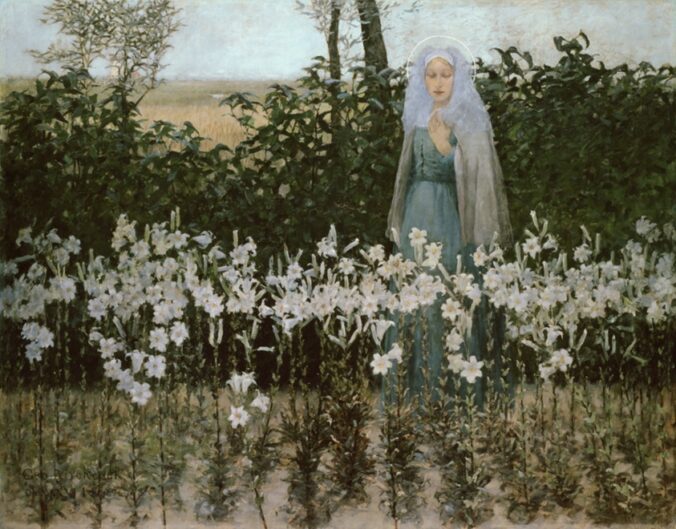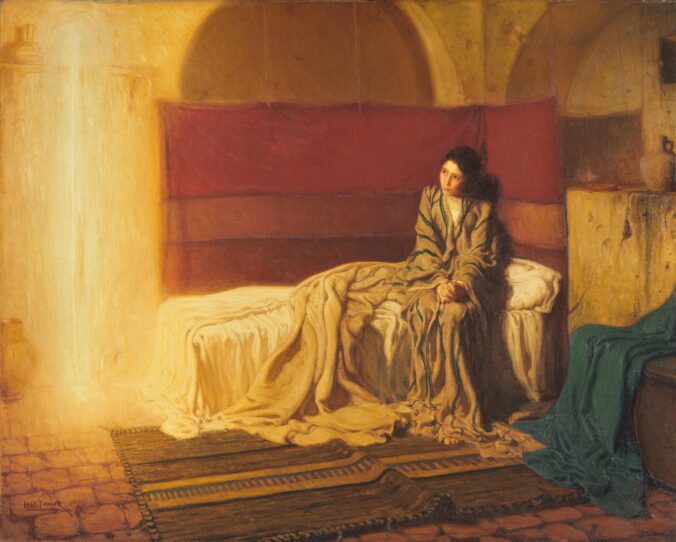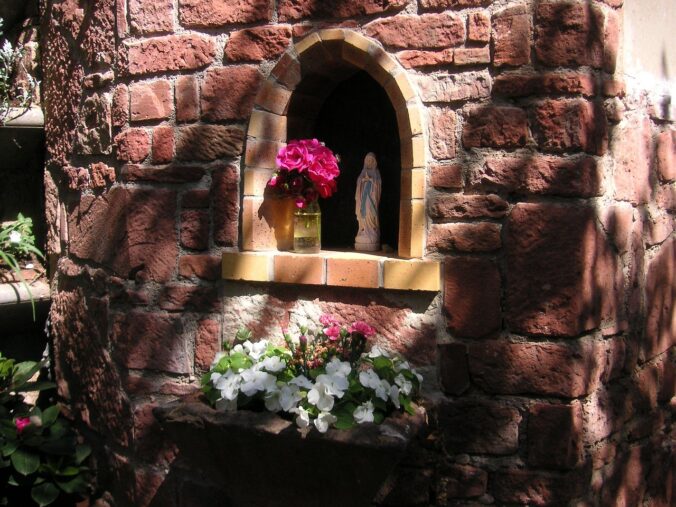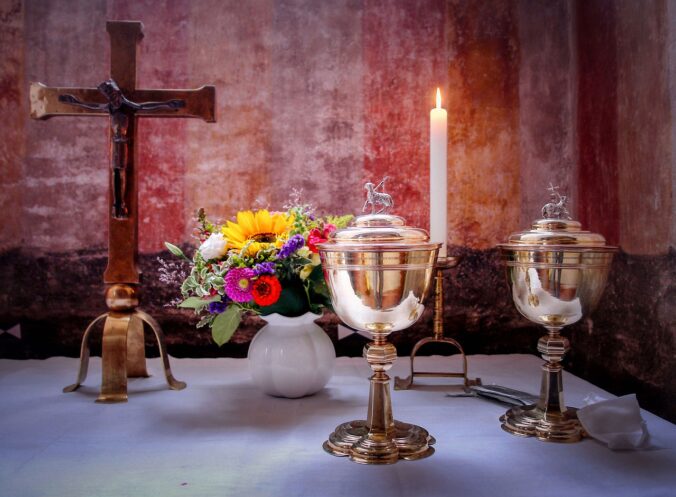The revelation of Mary’s divine mission from God is shared in detail within the Gospel of Luke.
Luke was a physician by trade and a traveling companion of Paul. As confirmed in the opening lines of his Gospel, Luke was not an eyewitness of Jesus’ life, but he was in intimate contact with many who were. In Luke’s own words, his purpose in writing the Gospel was to confirm the certainty of the things early believers had been taught about Jesus:
“Inasmuch as many have undertaken to compile a narrative of the things which have been accomplished among us, just as they were delivered to us by those who from the beginning were eyewitnesses and ministers of the Word, it seemed good to me also, having followed all things closely for some time past, to write an orderly account for you, most excellent Theophilus1, that you may know the truth concerning the things of which you have been informed.” Luke 1: 1-4.
The Gospel of Luke is indeed an orderly and chronologically conscious work that connects the story of Jesus with the larger Jewish and Roman world. As a physician — and as evidenced in his style of writing — Luke is personally responsible and accountable to people. Good physicians naturally possess a blend of medical knowledge and expertise, critical thinking, good communication skills, and ethical integrity. This context makes Luke’s detailed account of an archangel’s announcement, to a young Jewish girl named Mary, that she will conceive and bear a Son through a virgin birth — and become the Mother of Jesus, the Son of God — even more meaningful.
Again, we do not know much about the life of Mary. Apocryphal text2 identifies Mary as the only child of a pious couple, Anne and Joachim. Jewish parents viewed children as the greatest blessing from God and loved them dearly. While we do not know the age of Mary when the archangel Gabriel appears to her, we can presume that, as a young Jewish girl of faithful parents, Mary was raised as closely to the letter of Jewish law as possible, and as based on scripture. Mary had no doubt committed various Psalms to memory and studied the Hebrew scriptures closely, encouraged by her parents to contemplate the promises of God.
Mary also would have been taught helpful skills for running a household, such as cooking and weaving and caring for children.
Upon his arrival, the archangel Gabriel confirms the close tie of Mary’s heart to God and her favor with Him:
“In the sixth month, the angel Gabriel was sent from God to a city of Galilee named Nazareth, to a virgin betrothed to a man whose name was Joseph, of the house of David; and the virgin’s name was Mary. And he came to her and said, ‘Hail, full of grace, the Lord is with you!'” Luke 1: 26-28
“Hail, Mary” is a very joyful greeting that could be rephrased with modern words such as “Rejoice, most highly favored and beloved daughter of God!” Gabriel’s reference to Mary being “full of grace” confirms her purity — or in other words, Mary’s freedom from the stain of original sin.
Gabriel’s greeting of Mary concludes with the words, “The Lord is with you” — again signifying the depth of her current spiritual state, and perhaps even alluding to what may come for Mary.
Mary must have been startled by the presence of the archangel and perhaps surprised by his greeting, for Luke goes on to recount the following:
“But she was greatly troubled at the saying, and considered in her mind what sort of greeting this might be. And the angel said to her, ‘Do not be afraid, Mary, for you have found favor with God.'” Luke 1: 29-30
Gabriel is a powerful archangel – a heavenly messenger from God who makes appearances in both the Old and New Testaments. Archangels are supernatural spirits and forces who help to bridge the gaps that exist between the realities of earth and heaven.
We can only imagine what is going through Mary’s mind and heart as she takes in the presence of this unexpected and supernatural visitor. Gabriel is very direct in asserting that Mary is someone very dear to God. And yet despite Mary’s favor with God, she will be given the freedom to choose whether or not she will accept the plan that the Father has for her life.
But for today, I draw your eyes back to the artwork that appears at the top of this post. The painting was created by Henry Ossawa Tanner in 18983. Henry grew up in Pennsylvania, the eldest son of a reverend in the African Methodist Episcopal Church. In his depiction of the Annunciation, the artist captures both Mary’s humility and confusion. It appears that Mary has been awakened from her sleep by the archangel Gabriel, who is depicted as a column of bright light — a wonderful symbol of the Light that wishes to enter the world through this young girl.
1Theophilus is referred to again in Acts 1:1 , but nothing is known of him. Luke is also the author of the Acts of the Apostles.
2From the following apocryphal texts: the Gospel of the Nativity of Mary, Pseudo-Matthew and the Protoevangelium of James.
3The Annunciation (1898), by Henry Ossawa Tanner, today hangs in The Philadelphia Museum of Art.










Recent Comments